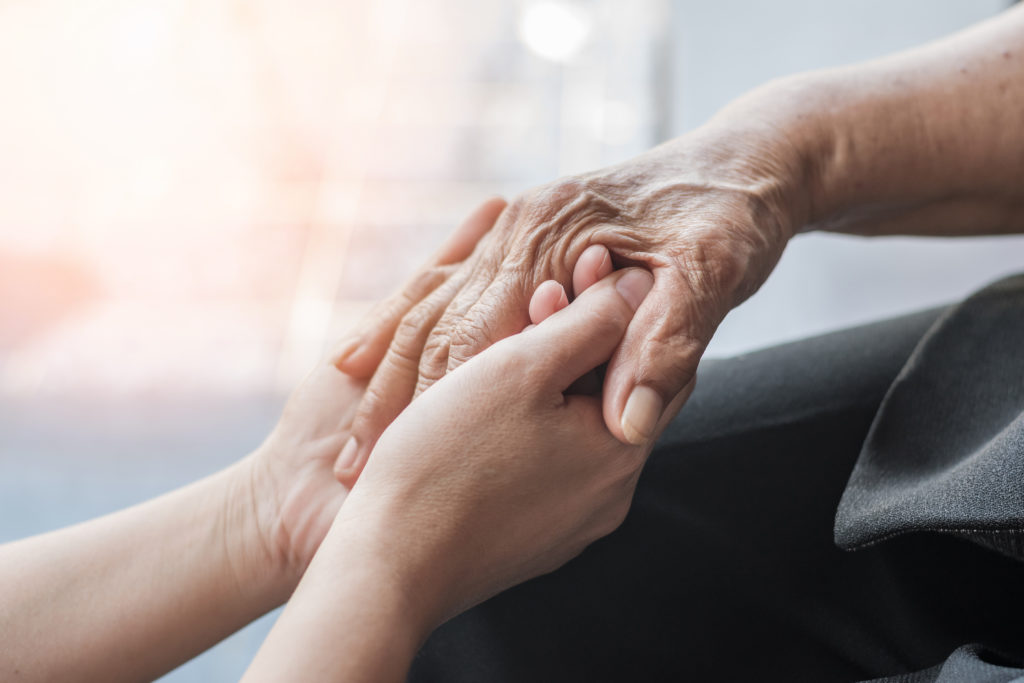The Second Shot: A Transformative Moment for Seniors, Caregivers, and the Community


StarPoint caregivers Leo Araujo, Kim Reid, and Lucy Semenov receive the first round of the COVID-19 vaccine at Cedar Village on January 28, 2021.
Pushing Back with Science to Advance Senior Safety
For more than a year now, the coronavirus has functionally served as the world’s cruel overlord: it has restricted our movements; repressed our social lives; isolated our seniors; controlled our economies; and shuttered our schools, entertainment venues, and sports arenas. In response, we’ve had little recourse but to obey the disease. To improve our chances of survival, we’ve had to toe the line and accept that COVID-19 was boss. That is, until now. The vaccines have changed everything. They represent a defiant reversal and the beginnings of a pushback.
“When you think about all we’ve been through, and all we’ve had to adapt to,” said StarPoint Home Care Director Debbie Balk, “having the second shot of vaccine under your belt is a powerful experience. It’s a game changer.” The strong sense of empowerment people feel upon getting their second shot is supported by the science. Recent studies have shown that both vaccines (Pfizer and Moderna) are proving even more effective in the field than they were in testing, which bodes well for enhancing the safery and mental well-being of seniors.
Caregivers Serving Seniors with a ‘Yes/And’ Approach to Safety
And the news is even better than it first seems: success rates near ninety-five percent do not suggest that five percent of those fully vaccinated will get sick; it indicates that your vaccinated self is ninety-five percent less likely to get sick than your unvaccinated self. In the Pfizer trials, 162 out of 18,325 unvaccinated people got sick, but only 8 out of 18,000 people got sick after receiving both doses. Put another way, given a population of double-vaccinated individuals, it is expected that about 0.049 percent will contract the coronavirus.
Better still, the high effectiveness of the vaccines, though not perfect, can deliver aggregate results that are nearly perfect. Especially if—upon receiving both rounds of the vaccinations—the public continues to abide by current safety protocols. “We still take all the same precautions to protect our senior clients: masks, safe distancing, hand washing, and sanitizer,” said Balk. “But the vaccine is like insurance: you never know when you will need it, yet it’s important to have and it gives you peace of mind.”
Insurance for Seniors, Caregivers, and Kids of Caregivers
StarPoint Caregiver Kim Reid seems to agree with the insurance analogy. “I’m not saying that I won’t get sick or I can’t get sick,” she said, “but with the vaccine, there’s an added layer of protection, not just for me, but for others, like my clients, and also my kids,” she asserted. “When it comes to my senior residents, I don’t want to bring anything to them because they’re high risk. But I also have a daughter who just got diagnosed with epilepsy when COVID started, and she’s high risk, too. Plus, I have a one-year-old son, so I don’t want to bring anything home from my residents to my kids that could make them sick, either.”
Finally, there was something I could do. I feel empowered. I feel proud. I feel connected to my community and to my country. It’s the feeling you’re doing the right thing for yourself, and those you love.
— Debbie Balk, Director of StarPoint Home Care
Second Time’s the Charm (or not)
Although the first dose of either approved vaccine is identical to the second dose, the way the body reacts to each can be different. The first dose serves as an introduction to the threat; the second dose occurs when the body is already on full alert for the coronavirus. As a result, side effects from the second dose tend to be more intense for most people.
Balk concedes she was blindsided by round two. “With great excitement I headed into the Hamilton County Board of Elections for my second dose,” she recalled with a smile. “After getting my shot—and buoyed by a new free cloth mask—I headed home.” It was then she came to realize her second rodeo wasn’t going to be as smooth as her first. “My next thirty-six hours were filled with fever and body aches, but knowing they had an ‘end’ and a ‘cause’ made it easier to bear. Fortunately, it was the weekend, so by Sunday at 10 a.m., I was back to being myself.”

StarPoint’s Debbie Balk and Alicia Reid admit that, while the second shot of the vaccine was no walk in the park, it was a small price to pay to protect the seniors under their care.
A Small Price to Pay for Doing Right by Senior Residents
On the day before Reid was set for her round two, she thought back to her first shot with an optimistic confidence similar to Balk’s. “The first shot didn’t hurt. I maybe just had a sore arm for 24 hours,” she said. “Other than that, I’ve been okay. And I’m really looking forward to tomorrow, because I’m ready to get it over with so I can let everyone know, ‘I’m done. I did it.’” However, less than an hour after getting vaccinated, Reid was struggling with a headache and an arm that was swollen and in pain. Just like Balk, she experienced about thirty-six hours of headaches, body aches, and chills. “I’m just glad to have that behind me,” she admitted later.
Today, Balk and Reid have no regrets. “I’ll take thirty-six hours of recovery time over the weeks or months it would take to recover from COVID-19—any day,” Balk said. “It actually feels kind of good,” noted Reid, “because I know that the residents I serve here at Cedar Village have gotten their second shot of vaccine. And so, knowing that I’ve followed their lead and I’m now making them safe, and I’m helping my kids stay safe—it just makes me feel good.”
Of course, it doesn’t hurt to know that by getting vaccinated, you’re telling COVID-19 who’s boss. Balk summed up her feelings this way: “Finally, there was something I could do. I feel empowered. I feel proud. I feel connected to my community, to the seniors I serve, and to my country. It’s the feeling you’re doing the right thing for yourself, and those you love.”
